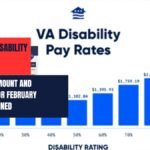The Capital One Bank lawsuit in 2024 involves a class action concerning representment fees. This article will provide you with essential details about the lawsuit, including the expected settlement amount, who is eligible to claim, and other important aspects.
In 2023, a lawsuit was filed against Capital One for charging fees on transactions that initially failed due to insufficient funds but eventually cleared when funds became available. Many people felt these fees were unfair. Read on to learn more about the Capital One Bank Class Action 2024 and how you might be affected.
Capital One Bank Lawsuit 2024
The lawsuit addresses representment fees charged by Capital One. These fees were applied to transactions like checks or ACH (Automated Clearing House) transfers that bounced because there weren’t enough funds at first but were processed successfully later when funds were available.
The key issue in the lawsuit is whether it was fair for Capital One to charge these fees even though the account holder had sufficient funds by the time the transaction went through. The lawsuit argues that these fees should not have been charged in such situations.
Settlement Money Coming
In June 2024, Capital One agreed to a $16 million settlement for the representment fees charged between September 1, 2015, and January 12, 2022. The settlement amount is set to be distributed among eligible claimants based on a specific timeframe established by the court.
To stay updated, keep an eye on your bank statements and online banking for any issues related to the settlement. If you believe you’ve been unfairly charged, especially if the funds were available soon after, reach out to your bank. They might reverse the fee.
Capital One Bank Lawsuit Eligibility
To qualify for the settlement, you needed to meet the following criteria:
| Criteria | Details |
|---|---|
| Account Holder | Must have been a Capital One account holder between September 1, 2015, and January 12, 2022. |
| Fees Charged | Must have been charged representment fees on checks or ACH transactions. |
| Transaction Status | The transactions must have cleared successfully later. |
The claims window for this settlement may have closed by now. If you missed it, there’s no need to worry about future claims as the settlement process has concluded.
Settlement Amount
The total settlement amount is $16 million. This money will be divided among all valid claims filed within the designated claims window. How much each eligible person gets depends on the number of claims and their validity.
It’s important to remember that the total settlement amount will not be equally divided among all claimants. Individual payouts will vary based on the number of claims and their details.
The Capital One Data Breach Lawsuit
There was also a separate lawsuit related to a data breach that occurred in 2019. The settlement for this breach concluded in 2022, and the deadline to file a claim has passed. However, affected individuals can still access identity theft protection services until February 13, 2028.
All We Know
Here are some tips to avoid unnecessary fees and protect yourself:
- Make sure you have enough funds in your account to cover transactions.
- Regularly check your bank statements and online banking to track your transactions.
- If you believe a fee is unfair, contact your bank. They might reverse it.
The Capital One Bank Lawsuit highlights issues with bank fees and helps inform customers about their rights. Even though the claims window has likely closed, understanding the case can help you manage your finances better and avoid similar issues in the future.
FAQ’s
What is the Capital One Bank Class Action 2024 about?
The lawsuit addresses fees charged by Capital One on transactions that initially failed due to insufficient funds but were successfully processed later.
How much is the settlement amount?
The total settlement amount is $16 million.
Who is eligible for the settlement?
You must have been a Capital One account holder from September 1, 2015, to January 12, 2022, and charged representment fees on checks or ACH transactions that later cleared.





